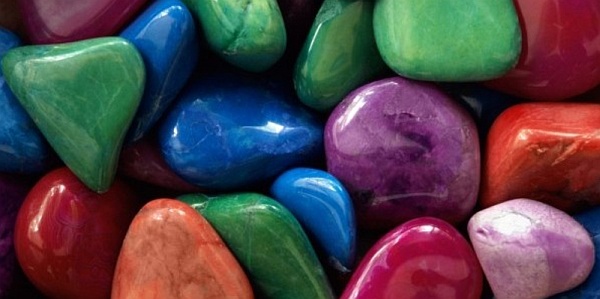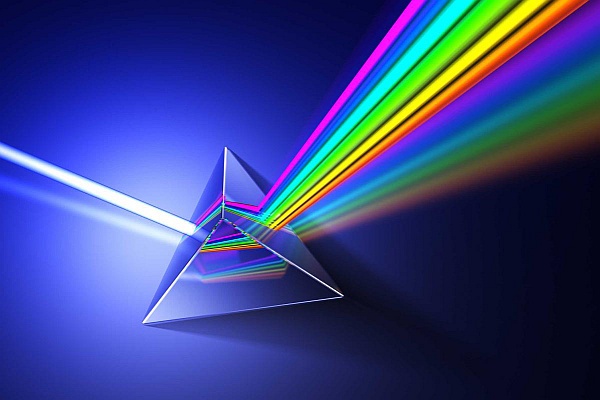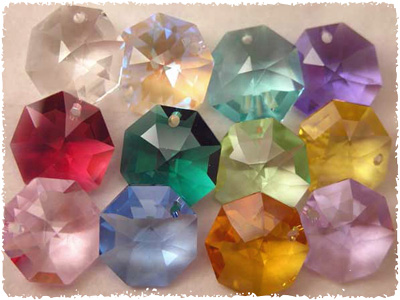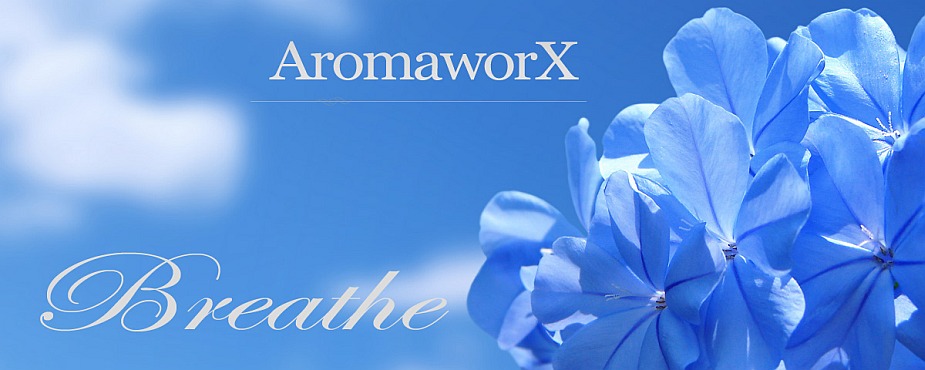Colour and Crystals
- Details
- Written by CrystalWind.ca
- Views: 10397

Stones and crystals are often chosen by colour for specific purposes. In fact, for any crystal healing system, colour is a primary mode of organization and guide to the properties and functions of the stones for a treatment. You can use colour as a rough guideline to the use of a crystal.
The area of colour healing and other healing work with coloured stones and crystals is a vast area of study. Colour is not the only factor or guide to the function of the crystal in healing and other work, but it is one of the most obvious guides when it comes to organizing your crystal companions.
Colour vibration creates a clear and direct resonance effect on the energy body and the mind, body and spirit. Much of our response to colour is built into our genetic and spiritual blueprint. While cultural interpretations and beliefs about colour can vary greatly from place to place and time to time, there are many aspects that appear to be almost universal.
Physical colour in the environment affects our moods, relationships, and our well being. Colour has a huge but often largely subconscious effect on our moods, actions, and mental emotional states of being. Our reactions to colours are led by a combination of biological, physiological, psychological, social and cultural factors.
Colours often have different symbolic meanings in different cultures. For example, white is the colour for weddings in western societies and is the colour for funerals in traditional Chinese Culture; red is associated with anger in America but with happiness in China.
Marketing experts, psychologists, advertisers and designers have long used colour to affect us directly. The colour in our surroundings has amazing power to affect our moods and decisions. We can use colour as a tool to create wellness and contentment, to incite passion or anger, to calm and soothe, and to express frivolity or seriousness.
As a tool for healing, colour can be gazed at, beamed as healing light, meditated on, bathed in, worn, used in art, painting and in ritual (such as candle magic and mandala work). Spiritual light and colour is used for healing the aura and the physical body for deepening meditation and to promote specific effects in the energy field.
Coloured light is beamed through crystals using a light box, or light can be visualized and sent by intention amplified by crystals. Colours can be run as shakti energies. Sitting under coloured light or shining coloured light on the skin is called Chroma therapy.

On the physical plane colour is the result of light hitting an object. The colour we see is the frequency of light that is reflected off an object as light strikes it; colours that we are able to see form the visible spectrum. The easiest way to become aware of the full spectrum in pure coloured light is to take an old CD and hold it in light while watching the play of rainbow colour across it. Rainbows are, of course a full spectrum and have the range of secondary and tertiary colours as well as the primary colours. Colours react with each other either by harmonizing or contrasting with each other. The colour wheel is a valuable tool for understanding colour. A colour wheel is an image of the spectrum bent into a circle.
The colours adjacent to each other on the colour wheel form a related harmonious sequence. When you are mixing colours of paint or pigments, the Primary colours are Red, Yellow and Blue. Red and yellow make orange and they are equidistant on the colour wheel. When you are working with light the Primary colours are magenta, cyan and blue. Computer screens are coloured by light rather than with pigment and the green (as a primary) is a much lighter yellow green than the emerald or grass green hue often used as the secondary colour in pigment based colour charts.
Primary means that in theory you can mix all other colours from them, though it is not as simple as it sounds because pure red, blue, and yellow do not exist in pigments. You cannot mix the primary colours from any other colours; orange, green and violet are secondary colours and are made by mixing equal parts of two primary colours. Yellow and blue make green, blue and red make violet, red and yellow make orange.
The tertiary colours are mixed from equal parts of a primary and the secondary colour next to it on the colour wheel; yellow-green, blue-green, blue-violet, red-violet, red-orange, yellow-orange, are the tertiary colours. White things reflect all frequencies of light, black things absorb all frequencies of light.
Complimentary colours are those opposite each other on the colour wheel and they intensify each other when placed next to each other. They can be mixed together to form a neutral gray and when you view a photographic negative you will see the complimentary colour of the positive photo image. The complimentary colours of the pigment primaries are: Red compliment = Green, Blue compliment = Orange, Yellow compliment = Violet.

All colours, including browns, grays, and neutral colours are mixed from combinations of primary and secondary colours.
Hue is another word for colour - it is used to describe close or similar colours; scarlet and crimson are both hues of red for example. Intensity, chroma and saturation all refer to how bright a colour is. Vivid bright colours have strong intensity; pale greyed colours are weak in intensity, adding white to strong red creates weak pink, greying a hue by adding the complimentary colour also weakens it. Tone refers to the relative lightness or darkness of a colour. When white is added to a colour the result is a tint of the colour. Pink is a tint of red, adding black to a colour results in a shade of the colour.
Certain colour effects seem universal, such as that of "warm" and "cool" colours. Warm colours generally include magenta, red, orange, yellow, and yellow green. They speed up our perception of time and produce feelings that are warm, cozy, and inviting. Warm colours tend to make things look near. These colours are associated with excitement, happiness and comfort. Cool colours generally include violet, blue, light blue, cyan and sea green. Emotions associated with these colours range from calm and peace to sadness, withdrawal and repression; cool colours create distance. Red, orange, and yellow (in ascending order) will elevate pulse, blood pressure, and incite arousal; even stimulate appetite. Blues and blue greens will calm and suppress the appetite, and lend a feeling of peace. Though the exact degree to which you feel these emotions will depend on you.
One of the most common ways for choosing crystals is with the chakra colour associations. Here is a brief list of the most common associations with a few examples:
Second chakra (sacral) Colour: Orange - Emotional Issues. Crystals: carnelian, fire opal, fire agate, orange jasper
Fourth chakra (heart) Colour: Green and pink - Love and spiritual issues. Crystals: malachite, emerald, green calcite, dioptase, jade, rose quartz, kunzite, pink marble, pink calcite
Sixth chakra (brow) Colour: Indigo or violet – Intuition. Crystals: lapis, sodalite, sapphire, amethyst, sugilite, lepidolite, azurite
Seventh chakra (crown) Colour: Violet or clear - Higher spiritual understanding. Crystals: amethyst, clear quartz
© 2008-2023 crystalwind.ca. All rights reserved. We track all IP addresses with sniffer technology. Using a Proxy/VPN will not hide your IP address. This post first appeared on CrystalWind.ca.
Liked this article? Dive deeper into personal growth and wellness! Check out CrystalWind.ca for spiritual wisdom or explore AromaWorx.ca for natural well-being tips. Spread the positivity—share this with friends on their happiness journey!
Let’s Chat! Drop Your Thoughts Below! ![]()
Disclaimer Health
All post and information provided within this blog is for educational and informational purposes only, and is not to be construed as medical advice or instruction. No action should be taken solely on the contents of this website. Please consult with your healthcare professional before making any dietary or lifestyle changes or taking supplements that may interfere with medications. Any products or information discussed are not intended to diagnose, prevent, treat or cure any illness, disease or lifestyle. Please consult your physician or a qualified health professional on any matters regarding your health and wellbeing or on any opinions expressed within this website.
Latest Articles

Imagine a world of inspiration and healing, free for all—made possible by YOU!
Donate Now—Ignite the Magic at CrystalWind.ca!

Epilepsy - Finding A Cure
Your donation can make a difference!
Help us find a cure – donate now!
Unlock Your Light: Join Lightworkers Worldwide on CrystalWind.ca!
Articles: Colour Energy
Articles: Sound Therapy
Follow Us!
Featured This Month
Lughnasadh Meditation
The Seventh Sabbat of the Wheel is Lughnasadh. Lughnasadh is celebrated on A... Read more
Lughnasadh (Lammas) - The Celtic Harvest Fes…
The Celtic harvest festival on August 1st takes its name from the Irish god ... Read more
Lammas by The Hedgewitch
Although in the heat of a Mid-western summer it might be difficult to discer... Read more
Lugh - Celtic God Of The Sun
The god Lugh was worshiped in Ireland as a deity of the sun. This connection... Read more
The Season of Lammas
The season of Lammas (also called Lughnasadh) begins on August 1st and conti... Read more













































